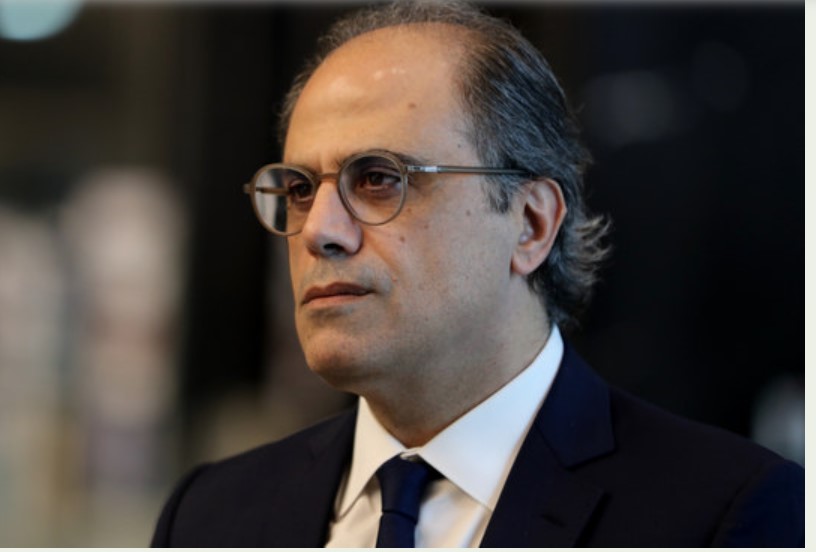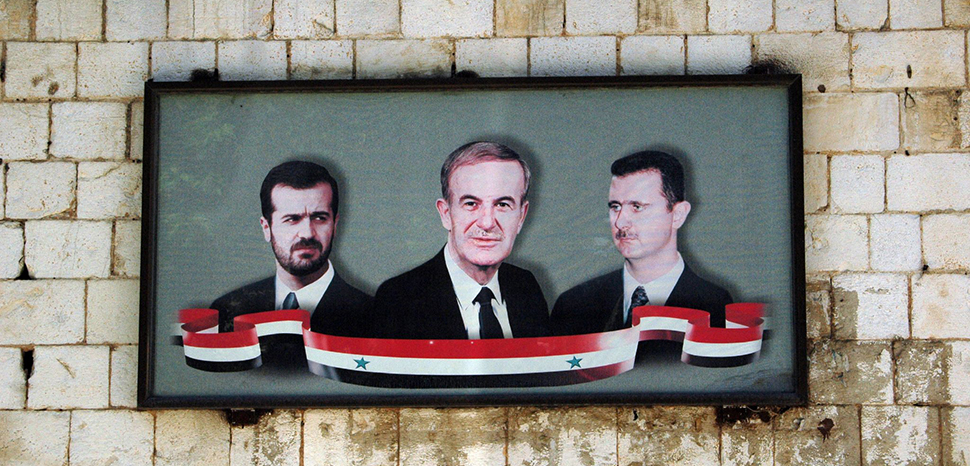
by thecradle.co -- Recently nominated Lebanese presidential candidate Jihad Azour will take a leave of absence from his post at the International Monetary Fund (IMF) to avoid any perceived conflict of interest, The National reported on 9 June. Azour is the director of the Middle East and Central Asia office at the IMF and was nominated for the position of Lebanese president, which has been vacant since October, when Michel Aoun’s term expired. The IMF said Azour, who served as finance minister of Lebanon between 2005 and 2008, was to take leave “to avoid any perception of conflict of interest.” In April of 2022, Lebanon and the IMF reached a staff-level agreement on an economic reform plan to unlock around $3bn of funding over several years. However, the agreed reforms have yet to be implemented.
The IMF alleges the reforms are needed to end Lebanon’s economic crisis, which began in 2019 when a decades-long Ponzi scheme involving the country’s central bank and commercial banks collapsed, causing the Lebanese lira to lose some 98 percent of its value and plunging much of the country into poverty. The crisis caused many Lebanese residents to lose their entire life savings and to suffer from widespread shortages of state-supplied electricity, clean water, and medicine. Scenes of women and children asking for money in the streets of downtown Beirut have become ubiquitous. Efforts to solve the country’s energy crisis by importing gas from Egypt via Syria have stalled as US officials refuse to give assurances that relevant US sanctions on Syria will be waived. However, while reform of the Lebanese banking sector is needed, some observers have questioned the merit of the proposed IMF reforms.
By ILIAS TSAGAS — By the end of 2020, Lebanon fell short of its national target of 100 MW for solar capacity, …

by Nada Homsi -- thenationalnews.com -- Former Lebanese president Michel Aoun has denied that his surprise visit to Damascus on Tuesday was to seek the backing of Syria's President Bashar Al Assad. Mr Aoun's media office issued a statement amid speculation that the founder of the Free Patriotic Movement was seeking Mr Al Assad's intervention in the Lebanese presidential election amid differences with its ally Hezbollah over the choice of candidates. Both the FPM and the Iran-backed Hezbollah group are aligned with Syria. The former president “did not request a mediation or support for the position of the Free Patriotic Movement leader,” the statement said, emphasising Mr Aoun's dedication to Lebanon’s sovereignty.
Gebran Bassil endorses Jihad Azour but says position is not entrenched “President Aoun's visit was strategic, about Syria and Lebanon's shared interests and the return of refugees to Syria, and it was not related to internal affairs,” an FPM representative told The National. Lebanon's presidential post has remained vacant for seven months since Mr Aoun completed his term last year as parties and political blocs attempt to find a consensus candidate. Hezbollah backs Suleiman Frangieh, leader of the Christian Marada Movement and known to be close to Damascus. But the FPM has categorically refused to support Mr Frangieh, allying with opposition parties to back former finance minister Jihad Azour.

By Dario Sabaghi foreign policy -- Investigations at home and abroad offer hope of justice for the country’s crisis. For more than three years, Lebanese citizens have continued to stage sporadic protests amid a dire economic crisis, directing their rage at the country’s political elite. One of the most prominent targets is Riad Salameh, the governor of Banque du Liban, Lebanon’s central bank. Posters at demonstrations across the country regularly feature Salameh’s face, whether stained with a bloody handprint or depicted in a fake mugshot. The message is clear: Lebanon’s protestors want Salameh out of power—and held to account. Salameh has headed Lebanon’s central bank for nearly 30 years. Now, he faces the prospect of prison time. On May 16, France issued an arrest warrant for Salameh over his failure to appear for questioning before investigators in Paris. The country launched a corruption investigation into Salameh and his associates over, among other things, the alleged laundering of more than $330 million from Lebanon’s public funds for personal use, including the purchase of luxury properties in Europe. The next week, Germany issued its own arrest warrant. Salameh has denied any wrongdoing.
Although Lebanon does not extradite its citizens, investigations into Salameh’s alleged crimes—including embezzlement, money laundering, illicit enrichment, and tax evasion—that are underway in Lebanon and six European countries may mark a turning point for Lebanon. For years, many Lebanese have felt hopeless about the country’s political and economic quagmire. Virtually no one among the Lebanese elite has faced any repercussions for their role in the crisis and its devastating impact on Lebanon’s population. But these probes may bring about, for the first time in years, some accountability. For many Lebanese, it’s a small sign that change could be coming. Salameh played a central role in the meltdown of Lebanon’s financial system that came to a head in 2019. “He is the author of a monetary policy put in place that led to a deep financial crisis,” said Sami Nader, director of the Levant Institute for Strategic Affairs.
Khazen History


Historical Feature:
Churches and Monasteries of the Khazen family

St. Anthony of Padua Church in Ballouneh
Mar Abda Church in Bakaatit Kanaan
Saint Michael Church in Bkaatouta
Saint Therese Church in Qolayaat
Saint Simeon Stylites (مار سمعان العامودي) Church In Ajaltoun
Virgin Mary Church (سيدة المعونات) in Sheilé
Assumption of Mary Church in Ballouneh
1 - The sword of the Maronite Prince
2 - LES KHAZEN CONSULS DE FRANCE
3 - LES MARONITES & LES KHAZEN
4 - LES MAAN & LES KHAZEN
5 - ORIGINE DE LA FAMILLE
Population Movements to Keserwan - The Khazens and The Maans
ما جاء عن الثورة في المقاطعة الكسروانية
ثورة أهالي كسروان على المشايخ الخوازنة وأسبابها
Origins of the "Prince of Maronite" Title
Growing diversity: the Khazin sheiks and the clergy in the first decades of the 18th century
Historical Members:
Barbar Beik El Khazen [English]
Patriach Toubia Kaiss El Khazen(Biography & Life Part1 Part2) (Arabic)
Patriach Youssef Dargham El Khazen (Cont'd)
Cheikh Bishara Jafal El Khazen
Patriarch Youssef Raji El Khazen
The Martyrs Cheikh Philippe & Cheikh Farid El Khazen
Cheikh Nawfal El Khazen (Consul De France)
Cheikh Hossun El Khazen (Consul De France)
Cheikh Abou-Nawfal El Khazen (Consul De France)
Cheikh Francis Abee Nader & his son Yousef
Cheikh Abou-Kanso El Khazen (Consul De France)
Cheikh Abou Nader El Khazen
Cheikh Chafic El Khazen
Cheikh Keserwan El Khazen
Cheikh Serhal El Khazen [English]
Cheikh Rafiq El Khazen [English]
Cheikh Hanna El Khazen
Cheikha Arzi El Khazen
Marie El Khazen